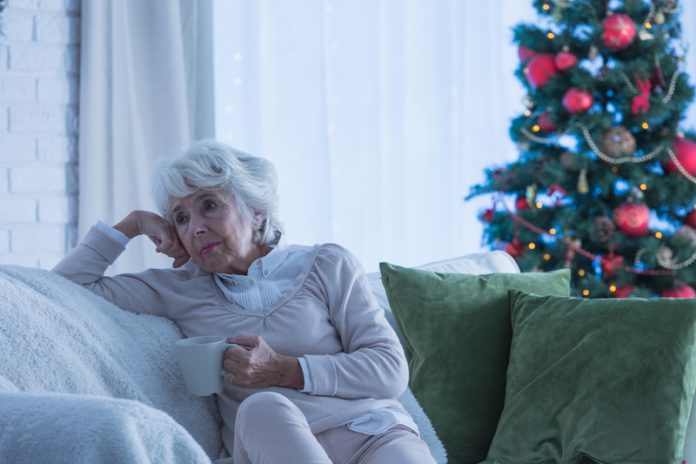This time of year can be lonely for those without a family, so Brits have been urged to help out the elderly during the Christmas season
As the festive season brings happiness to a lot of people around the world, it could also impact the loneliness in some people, giving them a clearer perspective of their lives living alone. The Mental Health Foundation has discovered that 19.7% of people aged 16 and over across the UK showed symptoms of depression or anxiety in 2014, while the Office for National Statistics (ONS) revealed in their reports that there were 5% of adults just throughout England, who are feeling alone either ‘often’ or ‘always’ in 2016 to 2017.
For those who are lonely, the Christmas period can tend to bring dread. This happens as they witness those around them enjoying the holiday season with their loved ones, and therefore their feelings of emotional isolation become worse.
On that note, according to ONS, older widowers living alone with long-term health conditions were reporting the feeling of loneliness more frequently. Elderly citizens who have had to say goodbye to a loved one may be made more aware that someone is no longer with them when they carry out traditions that they used to enjoy doing as a couple. Everything from hanging up Christmas decorations to having a Christmas dinner can trigger these moments of sadness.
As the Christmas season has quickly come around, Brits have been urged by Acorn Stairlifts to provide a helping hand to elderly loved ones and neighbours throughout the holiday period. Here’s some advice on how to do so…
Happiness within volunteering
Volunteering comes more rewarding and thoughtful when it’s carried out across the holiday season. There’s nothing quite matching helping others and then seeing their appreciation in the way they respond to the acts of kindness and the positive looks on their faces.
Lonely people can find volunteering very helpful too. However, it can be intimidating doing it on your own at first. Therefore, why not consider working at a soup kitchen or organizing a gift drive and then asking others if they want to get involved, too?
Speaking of volunteering, make sure you take the time to ask an elderly relative or neighbour if they’d need any help carrying out tasks around their homes this Christmas. Whether it’s giving them a hand to put up decorations or clearing their yard after a heavy snowstorm, you’ll be helping while also giving those you’re assisting some company.
Christmas traditions that you can involve older people in
No matter the age, people like to get involved with traditions years after year.
With that, there’s no reason why you can’t ask an elderly neighbour and relatives if they’d be interested in getting involved in any fun-filled occasions through the Christmas season. They may enjoy joining you for some Christmas shopping, for example, or to see your town or city’s Christmas lights display. See if they also want to get involved when you go carolling, are decorating your homes or are making holiday crafts too — many of these are likely to remind them of their youth and can also see many generations all enjoying the holiday period together.
One of things that people tend to worry about is feeling that they’re intruding on your family time, so they tend not to ask whether they can get involved on an individual’s Christmas traditions. However, they won’t need to worry about this if you’re the one to reach out and present them with the friendly invite.
Don’t just use electronics to connect with the elderly
Mobile devices and computers can heighten loneliness when people spend large amount of time on them. Dr. Jennifer Caudle, an assistant professor of family medicine at Rowan University School of Osteopathic Medicine, stated that loneliness can be “an invisible epidemic”, masked by an individual’s online persona.
Real life emotions of loneliness can’t be reflected by an individual’s online persona, Dr. Caudle also pointed out. Therefore, be sure to take the time to see people in person no matter how hectic the holiday season is.
“Being connected electronically isn’t the same as in person,” Dr. Caudle continued to acknowledge to CBS News. “There’s something about a person-to-person interaction that’s generally better for our well-being. Maybe it’s intangible. But I think being around other people, family or friends, and that reassurance, communication, or something as small as a smile or a touch; these are small things, but I think they’re very important.”
Sources:
https://www.mentalhealth.org.uk/statistics/mental-health-statistics-depression











